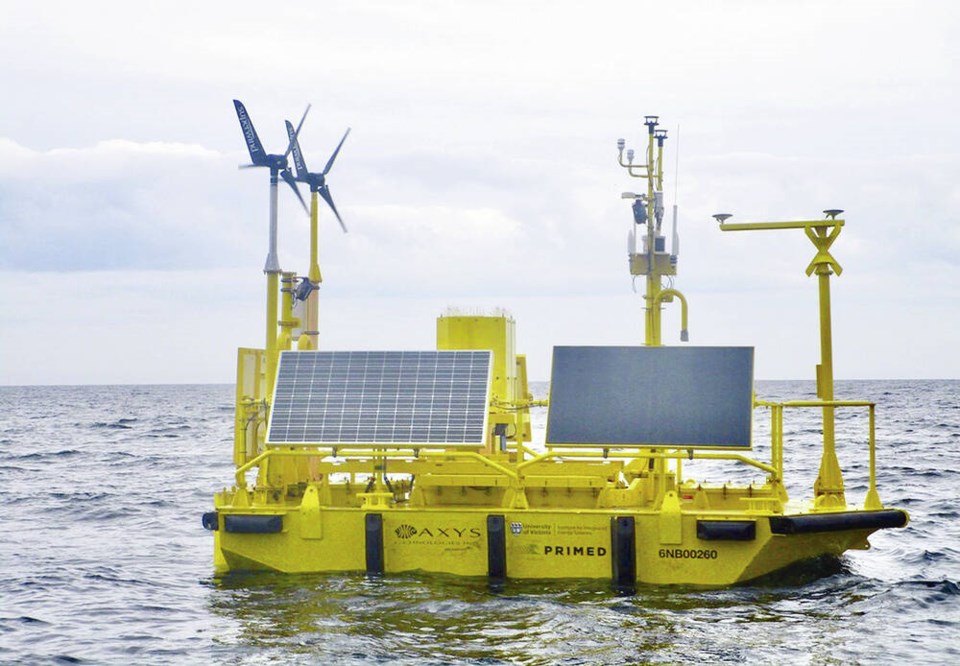A yellow buoy has been anchored 10 kilometres off a beach in Haida Gwaii to collect data on wind, waves, and currents.
The Floating Light Detection and Ranging Wind Sentinel buoy, anchored off G̲adsguusd North Beach, is expected to remain in place until September 2025.
It’s all part of a joint project between the Council of the Haida Nation and a University of Victoria team to study renewable energy resources around Haida Gwaii.
The hope is to tap marine energy sources such as wave, tidal and offshore wind power to reduce the islands’ heavy reliance on diesel.
Due to its isolated location, Haida Gwaii — made up of more than 200 islands 100 kilometres west of the north coast of mainland B.C. — is cut off from the primary BC Hydro power grid that serves the mainland.
The University of Victoria’s Pacific Regional Institute for Marine Energy Discovery (PRIMED) found that two diesel generation stations provide 60 per cent of the power to the islands’ nearly 5,000 residents.
More than 8.7 million litres of diesel fuel are used annually across the two sites to produce electricity. The north grid, including Old Massett, Masset, Port Clements, Tlell, Skidegate, Daajing Giids and Sandspit, depends entirely on diesel for power.
Yet PRIMED found Haida Gwaii’s topography and geography make marine renewable energy abundantly available, with powerful tidal currents and winds providing predictability and consistency compared to onshore renewable sources.
The project aims to quantify the resources and identify feasible locations for harnessing sustainable energy. The collected data will be presented to the Council of the Haida Nation, which will work with partners to determine potential energy production, map the power grid, calculate diesel displacement and estimate the cost of electricity generation.
Riley Richardson, PRIMED’s project manager, said the project will not only include assessments, field work and modelling, but also researching the impact of building marine energy technologies around Haida Gwaii.
Richardson said PRIMED’s goals are strictly research-based, however, and the location at G̲adsguusd, North Beach does not represent the actual site of an energy-production project.
Radha Agarwal is a Local Journalism Initiative reporter with Prince Rupert Northern View. The Local Journalism Initiative is funded by the Government of Canada.



